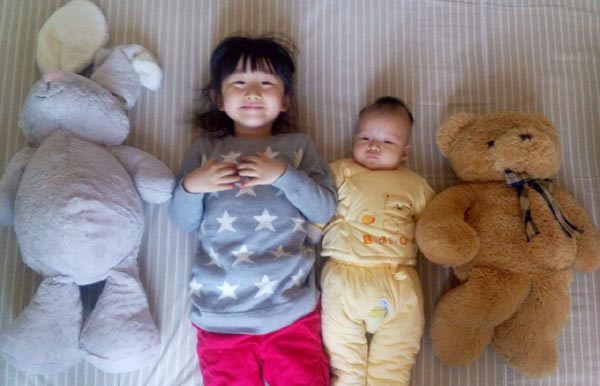 |
|
Li Shuchun, 4, and his 7-month-old brother Li Shuhan, live in Beijing with their parents who are among the 1.07 million out of 11 million eligible couples applied to have a second child by the end of last year. [Photo by Wang Nina/Provided to chinadaily.com.cn] |
Yuan Xin, a scientist at Nankai University in Tianjin who sits on an expert panel of the National Health and Family Planning Commission, offered the projection in an interview with China Daily.
The central government initially eased the family planning policy in late 2013, allowing couples to have a second child in situations where one spouse was only child. As of June, only 1.5 million of the 11 million eligible couples had applied for second child.
No specific date for an announcement on further changes to the rule has been scheduled, but many pundits have suggested it was likely to come soon.
The change will more highly impact rural families who are more interested than urbanites in having bigger families, Yuan said.
"The coming universal two-child policy would be much better received among the people than the previous policy relaxation," he said.
Yuan also urged the addition of more favorable social and economic policies to make it easier for couples to raise more children.
Official statistics show that China’s potential workforce, people ages 16 to 59, peaked around 2011, and has been in decline since then. At the same time, the number of working people has been declining as a proportion of the total population.
Last year, there were 916 million people between the ages of 16 and 59 in China, roughly 66 percent of the entire population. The proportion hit a peak of 74.5 percent in 2010, and has been falling ever since.
At the same time, the percentage of children to the total population has been dwindling, creating a dearth of future workers, said Mu Guangzong, a demographics expert at Peking University.
"The looming labor shortage will upset sustainable socioeconomic development of the country," Mu said.
To reverse the trend and fuel population growth, he recommended ending limits on family size.
China will need a new baby boom to counter aging, low fertility and labor shortages, Mu said.
